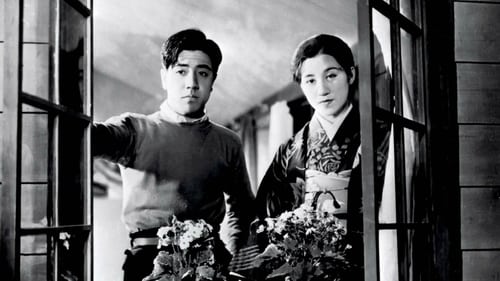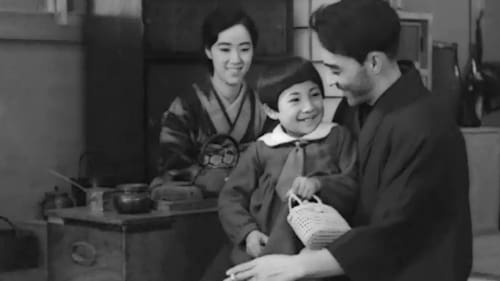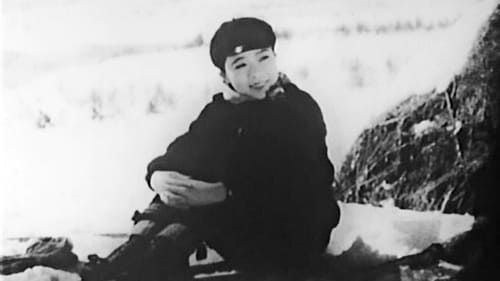Ichiro Yuki
Nacimiento : 1904-07-20, Ushigome, Tokyo, Japan
Muerte : 1988-09-15

Pinku from 1966.

Early pinku.

En el Tokyo de 1885, Kikunosuke Onoue, hijo de un importante actor, descubre, desolado, que es aplaudido únicamente por ser el heredero de su padre y que, en realidad, el público se mofa de sus interpretaciones. La única persona que se atreve a ser sincera con él es Otoku, la niñera de los hijos de su hermano. pero precisamente por ello es despedida, y a Kikunosuke le prohiben verla por temor a los rumores que se desatarían por su relación con una sirvienta.

dir: Teinosuke Kinugasa

Official Okubo
An onnagata (female impersonator) of a Kabuki troupe avenges his parents' deaths. Remade in 1963 as Yukinojô Henge.

Machio Harada
El último film mudo de Naruse cuenta la vida de una camarera, Sugiko, cuya vida toma un brusco giro tras ser atropellada por un rico hombre de negocios.

Keiji Makino
Shunsaku Atsumi, su madre Kishiyo, su aburrida esposa Masako su encantadora hijita Shingeko viven juntos en una confortable casa adquirida con los beneficios que les proporciona su boyante negocio de pescadería. No obstante, tan pintoresco cuadro no carece de trapos sucios. Nueve años antes, la verdadera madre de Shingeko, Tamae, dejó a Shunsaku y a su hija para marchar a Norteamérica. Un día, Shunsaku es acusado de un crimen, y Tamae regresa a casa convertida en una actriz de éxito en los Estados Unidos y reclama la custodia de su hija. Entretanto, en la empresa de Shunsaku, los trabajadores y la dirección se hallan enfrentados por motivos salariales. Tamae se ofrece para sacar a la compañía de sus apuros con su propio dinero, pero Shunsaku se niega en redondo. Shunsaku ingresa en prisión y la compañía se desliza hacia la quiebra...


Kato
This 1932 adaptation is the earliest sound version of the ever-popular and much-filmed Chushingura story of the loyal 47 retainers who avenged their feudal lord after he was obliged to commit hara-kiri due to the machinations of a villainous courtier. As the first sound version of the classic narrative, the film was something of an event, and employed a stellar cast, who give a roster of memorable performances. Director Teinosuke Kinugasa was primarily a specialist in jidai-geki (period films), such as the internationally celebrated Gate of Hell (Jigokumon, 1953), and although he is now most famous as the maker of the avant-garde silent films A Page of Madness (Kurutta ichipeji, 1926) and Crossroads (Jujiro, 1928), Chushingura is in fact more typical of his output than those experimental works. The film ranked third in that year’s Kinema Junpo critics’ poll, and Joseph Anderson and Donald Richie noted that 'not only the sound but the quick cutting was admired by many critics.

Ichiro Munakata
Part two of Shimizu's major silent Seven Seas, a family drama of the intertwining fates of the rich, decadent Yagibashis and the far less prosperous Sone family.

Ichiro Munakata
The film is a lengthy work interweaving characters from different backgrounds and social strata in a narrative centered around the experiences of its heroine, Yumie Sone. Over two hours long, Seven Seas was released theatrically in two parts, with the first part entitled "Virginity Chapter" coming out in December 1931, while the second part, "Chastity Chapter," followed in March 1932. Near the beginning of the narrative, at a garden party given by the wealthy Yagibashi family in Tokyo, Yumie meets Takehiko, the Yagibashis' playboy son and the brother of Yumie's fiancé, Yuzuru. Yumie, a young middle-class woman, lives with her ailing father, a retired ministry official, an older sister, and a younger sister still a child (played by a very young Hideko Takamine). Takehiko, who has just returned from a trip to Europe, is attracted to Yumie and contrives to have her stay overnight at his family's mansion where he takes advantage of her.

The love of an older sister who worked as a geisha but decided to open a bar under the auspices of a millionaire

The Idiot, by Fyodor Dostoevsky.

Okamura
The remaining fragments of an early Ozu film. It is the simple story of two friends who live together in a poor tenement and who share about everything in life (food, hopes, work...). Everything goes well until they gallantly rescue a young (and pretty) woman injured in a road accident. Since the lady has nowhere to go, the two good-hearted friends invite her to their home. She soon becomes their housemaid and they soon begin to seek her favors. Alas, she falls for a young student she has met in the neighborhood, much to the two friends' dismay.

Fujimura
Short feature by Hiroshi Shimizu.

Bin Watanabe
Students Watanabe and Yamamoto unknowingly compete for the same girl.

Jiro Ikeda
Solo se conserva un fragmento 20 minutos de esta película de Shimizu.








